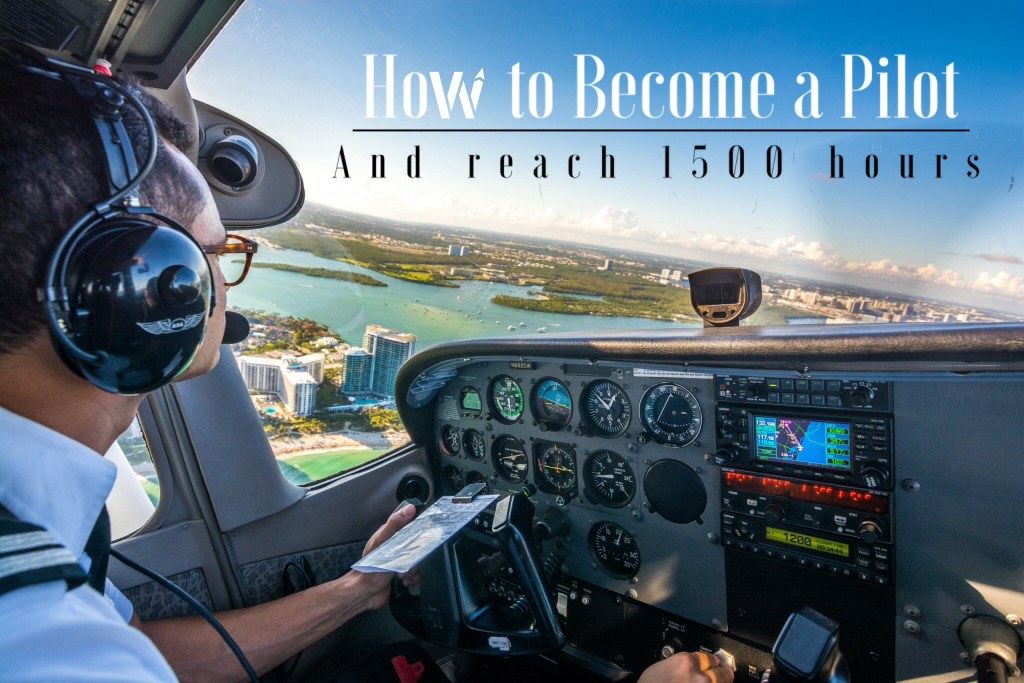Unveil The Mastery: Embark On A Journey With Captivating 1,500 Hours Of Flight Experience
1 500 Hours of Flight Experience
Introduction
Dear Readers,
2 Picture Gallery: Unveil The Mastery: Embark On A Journey With Captivating 1,500 Hours Of Flight Experience


Welcome to this informative article on the importance of gaining 1,500 hours of flight experience. In the aviation industry, flight experience is crucial for pilots as it enhances their skills and expertise, ensuring their ability to handle various situations effectively. In this article, we will explore the significance of accumulating 1,500 hours of flight experience and its impact on a pilot’s career and proficiency. So, let’s delve into the world of aviation and discover the importance of this milestone.
What is 1 500 Hours of Flight Experience?

Image Source: atlas-blue.com
✈️ 1,500 hours of flight experience refers to the total time a pilot spends operating an aircraft. It includes both training and actual flight hours logged by the pilot.
✈️ This experience is typically obtained after obtaining a private pilot license and progressing to more advanced levels, such as commercial pilot or airline transport pilot.
✈️ It is an industry-standard requirement for pilots to reach this milestone before they can apply for certain positions or advance their careers.

Image Source: zinnfigur.com
✈️ The flight experience can be gained through different types of flights, including cross-country flights, night flights, and instrument flights.
✈️ The duration of flight experience accumulation varies for each pilot, depending on their training program, availability of flights, and personal commitment.
✈️ It is a significant achievement for pilots, as it demonstrates their dedication, skills, and ability to handle various aircraft and situations.
Who Needs 1 500 Hours of Flight Experience?
✈️ Aspiring commercial pilots aiming to work for airlines often require 1,500 hours of flight experience as per industry regulations.
✈️ Airline transport pilots, who operate large commercial aircraft, also need to fulfill this requirement before they can be considered for such positions.
✈️ Even pilots with private pilot licenses can benefit from accumulating flight hours, as it enhances their proficiency and opens up opportunities for career advancement.
✈️ Flight instructors and aviation trainers often aim to achieve this milestone to demonstrate their expertise and credibility to their students.
✈️ In summary, anyone with a passion for aviation and a desire to pursue a career as a pilot can benefit from earning 1,500 hours of flight experience.
When Should Pilots Aim for 1 500 Hours of Flight Experience?
✈️ Pilots should begin accumulating flight experience as early as possible in their careers.
✈️ The specific timeframe depends on factors such as the individual’s flight training program, availability of flights, and personal commitments.
✈️ As the flight experience requirement is essential for career progression, pilots should aim to achieve this milestone within a reasonable timeframe while ensuring their skills and knowledge are well-developed.
✈️ It is important to note that flight experience is an ongoing process, and pilots continue to accumulate hours throughout their careers to maintain and enhance their proficiency.
Where Can Pilots Gain 1 500 Hours of Flight Experience?
✈️ Flight experience can be gained through various aviation organizations, flight schools, and training programs.
✈️ Pilots can choose to gain experience through different types of flights, including cross-country flights, night flights, and instrument flights.
✈️ Some pilots choose to work for regional airlines or charter companies, as these opportunities often provide them with the necessary flight hours.
✈️ Additionally, flight instructors can accumulate flight hours by training aspiring pilots and providing them with the necessary knowledge and skills.
✈️ In short, pilots have multiple avenues to gain the required flight experience, and it is essential to choose reputable organizations that provide valuable training and flight opportunities.
Why is 1 500 Hours of Flight Experience Important?
✈️ The accumulation of 1,500 hours of flight experience is important for several reasons:
✈️ It demonstrates a pilot’s commitment to the profession and their dedication to honing their skills and knowledge.
✈️ Flight experience provides pilots with exposure to various aircraft, weather conditions, and navigational challenges, making them well-rounded and adaptable.
✈️ It enhances a pilot’s decision-making abilities, problem-solving skills, and risk management techniques.
✈️ Airlines and aviation employers often prioritize candidates with substantial flight experience, as it signifies their ability to handle complex situations and ensures a higher level of safety and professionalism.
✈️ The 1,500-hour milestone also serves as a benchmark for pilots to pursue advanced certifications and career opportunities.
✈️ Ultimately, flight experience is vital for pilots to build confidence, proficiency, and the necessary skillset to excel in their aviation careers.
How Can Pilots Benefit from 1 500 Hours of Flight Experience?
✈️ The benefits of accumulating 1,500 hours of flight experience are manifold:
✈️ It increases employment prospects and opens up opportunities with airlines and other aviation organizations.
✈️ Pilots gain exposure to different aircraft types, which expands their versatility and adaptability.
✈️ Flight experience enhances a pilot’s decision-making abilities, particularly in challenging and high-pressure situations.
✈️ It allows pilots to develop valuable connections within the aviation industry, leading to potential career advancements.
✈️ Accumulating flight hours also serves as a personal achievement and a testament to a pilot’s hard work and dedication.
Advantages and Disadvantages of 1 500 Hours of Flight Experience
Advantages:
1. 🚀 Enhanced Skills: Pilots with 1,500 hours of flight experience possess advanced skills and are better equipped to handle diverse flying conditions.
2. 🚀 Career Advancement: This milestone opens up doors to higher-level positions, such as airline transport pilots, providing excellent career growth opportunities.
3. 🚀 Industry Recognition: Pilots with extensive flight experience gain recognition within the aviation industry, increasing their professional reputation.
4. 🚀 Increased Confidence: The accumulation of flight hours boosts a pilot’s confidence level, enabling them to face challenges with self-assurance.
5. 🚀 Networking Opportunities: Pilots can develop valuable connections with industry professionals, leading to potential career advancements and collaborations.
Disadvantages:
1. ⚠️ Time-consuming: Gaining 1,500 hours of flight experience requires a significant time commitment, which may delay career progression.
2. ⚠️ Financial Investment: Accumulating flight hours can be costly, especially for pilots who are self-funding their training and flight hours.
3. ⚠️ Availability of Opportunities: The availability of flight hours may vary depending on factors such as geographic location and demand for pilots.
4. ⚠️ Competitive Job Market: While 1,500 hours of flight experience improves employability, the job market remains competitive, requiring pilots to stand out among their peers.
5. ⚠️ Fatigue and Schedule Challenges: Pilots may face fatigue and scheduling difficulties when striving to accumulate the necessary flight hours while managing other commitments.
Frequently Asked Questions (FAQs)
Q: Can I gain flight experience while pursuing my pilot training?
A: Absolutely! Flight experience is an integral part of pilot training, and you will start accumulating hours from the early stages of your aviation journey.
Q: How long does it typically take to reach 1,500 hours of flight experience?
A: The duration varies depending on various factors, including the training program, availability of flights, and personal commitment. On average, it takes several years to accumulate the required flight hours.
Q: Can flight simulator hours be counted towards the 1,500 hours of flight experience?
A: Yes, flight simulator hours can be counted towards the flight experience requirement. However, the specific regulations and limitations may vary based on the aviation authority and the type of flight being simulated.
Q: Is it possible to gain flight experience while working in a non-aviation job?
A: Yes, many pilots gain flight experience while working in non-aviation jobs. This allows them to build their flight hours gradually while fulfilling other professional commitments.
Q: Are there any alternative pathways to gain flight experience other than working for airlines?
A: Yes, pilots can choose alternative pathways such as working for charter companies, flight schools, or becoming flight instructors to gain the necessary flight experience.
Conclusion
In conclusion, accumulating 1,500 hours of flight experience is a significant milestone for pilots aspiring to advance their aviation careers. It demonstrates their dedication, skills, and ability to handle various aircraft and situations. Gaining this experience opens up numerous opportunities within the aviation industry, enhances decision-making abilities, and increases employability. While it may involve time and financial investment, the benefits far outweigh the challenges. So, if you have a passion for flying, aim for the skies, gain 1,500 hours of flight experience, and soar to new heights in your aviation journey!
Final Remarks
Aviation is a highly regulated industry, and it is essential to comply with all applicable aviation laws, regulations, and safety protocols. This article aims to provide general information about the importance of 1,500 hours of flight experience and its impact on a pilot’s career. However, it is crucial to consult with aviation authorities, flight training organizations, and experienced professionals for specific guidance tailored to your individual circumstances. Fly safely and responsibly, and always prioritize the well-being of yourself and your passengers. Bon voyage!
This post topic: Air Travel Tips

